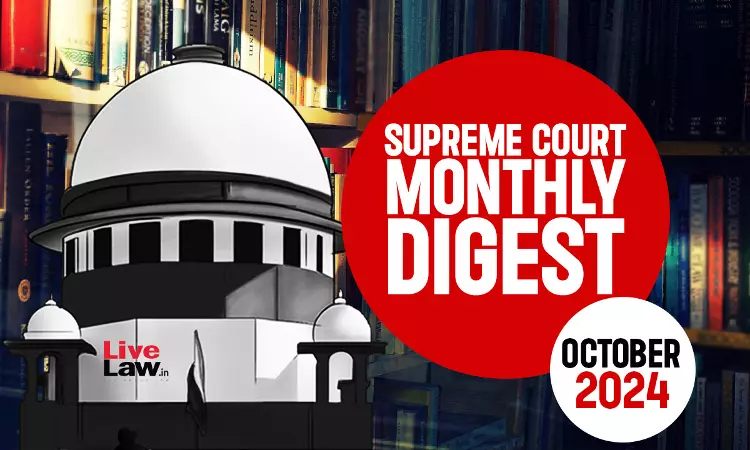Supreme Court Monthly Digest- October 2024 With Statute And Subject Wise Index
LIVELAW NEWS NETWORK
22 Dec 2024 12:02 PM IST

Next Story
22 Dec 2024 12:02 PM IST
AdvocateSupreme Court deprecates practice of litigant engaging new lawyer to reargue case after court expressed dissatisfaction on merits. Pintu Madanmohan Mondal v. State of West Bengal, 2024 LiveLaw (SC) 850Airport Economic Regulatory Authority of India Act 2008The Supreme Court upheld the maintainability of appeals filed by Airports Economic Regulatory Authority (AERA) assailing orders of...
